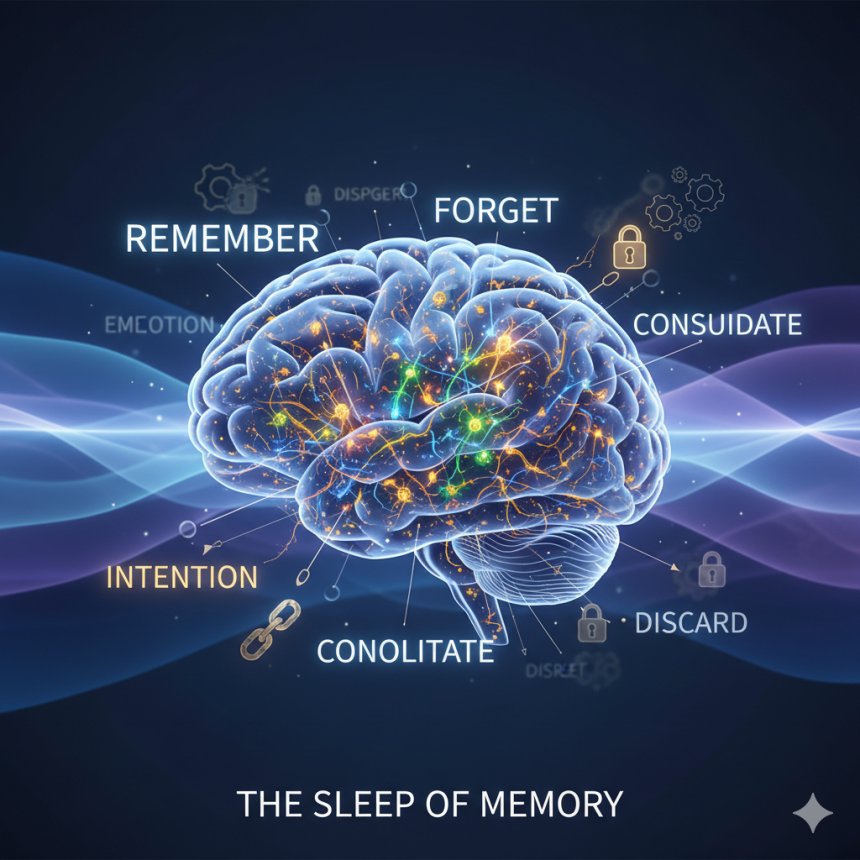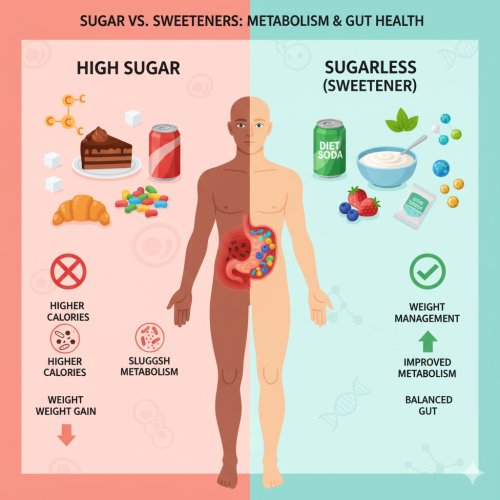Sleep, Emotion, and Memory: Why Your Intentions Matter More Than Feelings
A new study in Frontiers in Behavioral Neuroscience reveals that deliberate intention to remember has a stronger effect on memory consolidation than emotional salience — even during sleep.

Intentional Memory Beats Emotional Memory
For years, scientists have known that a good night’s sleep helps strengthen memories. But a recent study published in Frontiers in Behavioral Neuroscience suggests that what we intend to remember plays an even bigger role than how we feel about it.

Led by Dr. Laura Kurdziel of Merrimack College, the study compared two types of memory influences: deliberate instructions (“remember this”) and emotional associations (such as negative or stressful words). Surprisingly, the researchers discovered that top-down instruction outweighed emotional salience — meaning that your conscious decision to remember is more powerful than your emotions.
“We have more control over our memories than we often think we do,” said Dr. Kurdziel.
The Study Design
Researchers ran two matching experiments: one online (45 participants) and one in the lab (53 participants). Some participants were tested after staying awake, while others slept between sessions.
During the task, participants viewed 100 words — half neutral, half emotionally negative — followed by cues to either remember or forget. Later, they were tested on which words they recalled or falsely recognized.
Even when negative emotions enhanced recall slightly, explicit instructions to remember were the strongest predictor of memory success.
What the Brain Revealed
For the lab participants, EEG headbands tracked their brain waves during sleep.
Interestingly, the quantity of sleep itself didn’t predict better recall — but specific sleep stages did:
-
REM theta power correlated with false memories of negative words.
-
Sleep spindles were linked to accurate recall of negative, remember-cued words.
-
Slow wave sleep (SWS) surprisingly showed a negative correlation with total recall, hinting that deep sleep may promote forgetting of irrelevant information.
These findings suggest that the brain selectively consolidates meaningful or goal-oriented memories while pruning away less relevant ones — even during sleep.
What This Means for You
The takeaway? You have more control over what your brain stores than you might think. Before heading to bed, setting a clear intention to remember something could be more effective than relying on emotional impact alone.
So next time you’re studying or trying to commit something important to memory, tell yourself to remember — then sleep on it.
Learn More
References
Kurdziel, L. B. F., et al. (2025). Top-Down Instruction Outweighs Emotional Salience: Nocturnal Sleep Physiology Indicates Selective Memory Consolidation. Frontiers in Behavioral Neuroscience. DOI:10.3389/fnbeh.2025.1643449


















